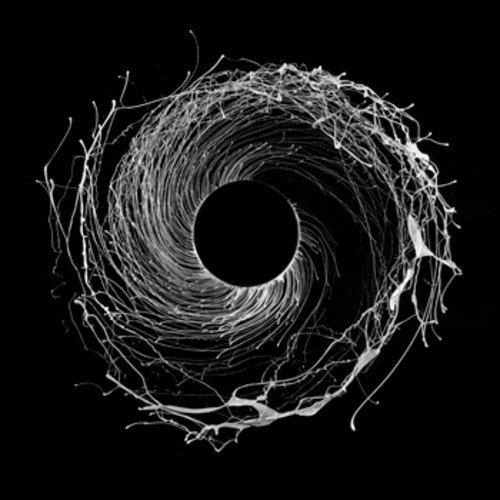MARK McGUIRE - Along The Way
 Monday, February 10, 2014 at 06:10PM
Monday, February 10, 2014 at 06:10PM  Combining his needly, shimmering, Gottsching-like leads with a slew of other instrumentation that's more layered, nuanced and detailed than previous efforts, Along The Way's continuous suite, while more of an expansion of his palette than an outright departure, somehow simultaneously sounds both more mature and more lighthearted than anything we were expecting to hear on this first for Dead Oceans by the former Emeralds guitarist.
Combining his needly, shimmering, Gottsching-like leads with a slew of other instrumentation that's more layered, nuanced and detailed than previous efforts, Along The Way's continuous suite, while more of an expansion of his palette than an outright departure, somehow simultaneously sounds both more mature and more lighthearted than anything we were expecting to hear on this first for Dead Oceans by the former Emeralds guitarist.
"The first sounds we hear on Along The Way are strummed acoustic guitars, and we hear more of them throughout, but this isn’t a guitar record. Instead, McGuire piles on the layers: Guitars, synths, mandolins, drum machines, sighed vocals, sounds that could be any of those things but could also be bird noises or whatever. It’s a mellow, contemplative, staring-longingly-through-your-window-on-a-sunny-day kind of record, and it’s way too aggressively pleasant for anyone to seriously call it “drone.” When the drum programming clicks in, you could almost be listening to pastoral ambient techno, except that the focus is never really on the beat, or on anything else for that matter. The parts with vocals (processed, flat, multi-tracked, conversational, often wordless) can sound a bit like solo Panda Bear. Other times, it’s like the score to Friday Night Lights if Peter Berg had been into Fennesz instead of Explosions In The Sky. And because it sounds like all these things while simultaneously sounding like none of them, Along The Way practically feels like its own genre of music, a new hybrid that calls out for a name like Balearic Blues or Astral Noodle or Ambient Sunburst Glop, or maybe even something that isn’t terrible." - Stereogum






















